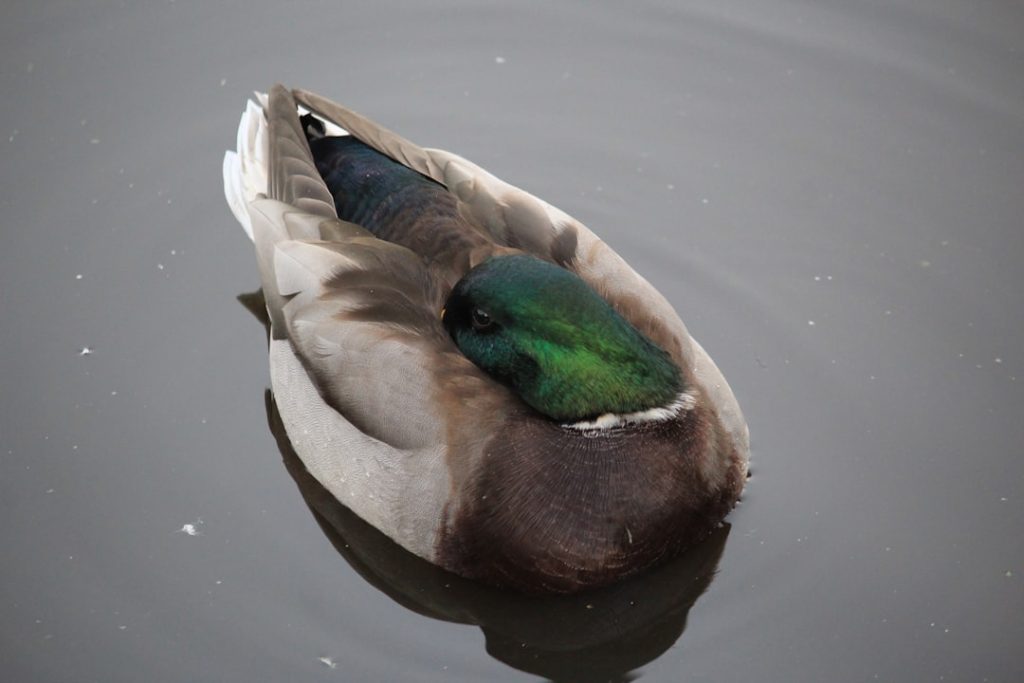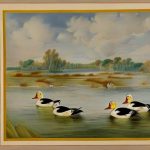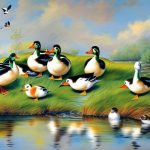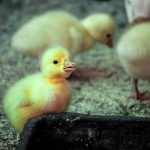Duck hunting is a popular outdoor activity that has been enjoyed by people for centuries. It is a challenging and rewarding sport that requires skill, patience, and a deep understanding of the behavior and habits of ducks. Duck hunting can be done in various environments, including marshes, lakes, rivers, and coastal areas. It is a great way to connect with nature and enjoy the outdoors while also providing a source of food for many hunters. Duck hunting is not only a sport but also a way to manage duck populations and preserve the natural balance of ecosystems.
Duck hunting has a rich history and has been a part of human culture for thousands of years. In ancient times, ducks were hunted for their meat, feathers, and eggs, and they were an important source of food for many civilizations. Today, duck hunting is regulated by laws and regulations to ensure the sustainability of duck populations and the preservation of natural habitats. It is important for hunters to be knowledgeable about these regulations and to hunt responsibly to protect the environment and ensure the future of duck hunting for generations to come.
Table of Contents
- 1 Characteristics of Ideal Duck Breeds for Hunting
- 2 Popular Duck Breeds for Hunting
- 3 Factors to Consider When Choosing a Duck Breed for Hunting
- 4 Training and Handling Duck Breeds for Hunting
- 5 Best Practices for Hunting with Duck Breeds
- 6 Conclusion and Final Tips for Duck Hunting
- 7 FAQs
- 7.1 What are the best duck breeds for hunting?
- 7.2 What characteristics should I look for in a duck breed for hunting?
- 7.3 Are there specific duck breeds that are better for certain hunting environments?
- 7.4 What are some popular duck breeds for waterfowl hunting?
- 7.5 Are there any duck breeds that are not suitable for hunting?
Key Takeaways
- Duck hunting is a popular outdoor activity that requires specific breeds of ducks for success.
- Ideal duck breeds for hunting are those with strong flying abilities and good foraging instincts.
- Popular duck breeds for hunting include Mallards, Pintails, and Teal, known for their agility and adaptability.
- When choosing a duck breed for hunting, factors to consider include the bird’s size, temperament, and ability to respond to training.
- Training and handling duck breeds for hunting requires patience, consistency, and positive reinforcement techniques.
Characteristics of Ideal Duck Breeds for Hunting
When it comes to duck hunting, not all duck breeds are created equal. There are certain characteristics that make some duck breeds more suitable for hunting than others. Ideal duck breeds for hunting are those that are strong flyers, have good endurance, and are adaptable to various environments. They should also have a strong instinct for survival and be able to navigate through different types of terrain. Additionally, ideal duck breeds for hunting should have a good temperament and be trainable, making them easier to handle during hunting expeditions.
Another important characteristic of ideal duck breeds for hunting is their ability to retrieve downed ducks. This requires a strong retrieving instinct and a willingness to work closely with their human handlers. The ideal duck breed for hunting should also have a good sense of smell and be able to track down wounded ducks in water or on land. Overall, the ideal duck breed for hunting should possess a combination of physical and behavioral traits that make them well-suited for the challenges of duck hunting.
Popular Duck Breeds for Hunting
There are several popular duck breeds that are commonly used for hunting. One of the most popular breeds is the Mallard, which is known for its strong flying ability, adaptability to different environments, and excellent retrieving skills. Mallards are also prized for their flavorful meat, making them a favorite among hunters. Another popular duck breed for hunting is the Pintail, which is known for its agility and speed in flight. Pintails are also highly prized for their striking appearance, with their long, slender necks and distinctive markings.
The Black Duck is another popular breed for hunting, known for its strong flying ability and adaptability to various habitats. Black Ducks are also known for their resilience and ability to survive in harsh conditions, making them well-suited for hunting in challenging environments. Other popular duck breeds for hunting include the Wood Duck, Wigeon, and Teal, each with their own unique characteristics that make them valuable assets for hunters. These popular duck breeds have been favored by hunters for generations due to their exceptional hunting abilities and overall suitability for the sport.
Factors to Consider When Choosing a Duck Breed for Hunting
When choosing a duck breed for hunting, there are several important factors to consider. One of the most important factors is the environment in which you will be hunting. Different duck breeds have different habitat preferences and behaviors, so it is important to choose a breed that is well-suited to the specific environment where you will be hunting. Additionally, it is important to consider the purpose of the hunt, whether it is for sport or for food, as this can influence the choice of duck breed.
Another important factor to consider when choosing a duck breed for hunting is the temperament and trainability of the breed. Some duck breeds are more easily trainable and have better temperaments for working closely with humans during hunting expeditions. It is also important to consider the physical characteristics of the breed, such as their flying ability, endurance, and retrieving skills. Overall, it is important to carefully consider all these factors when choosing a duck breed for hunting to ensure a successful and enjoyable hunting experience.
Training and Handling Duck Breeds for Hunting
Training and handling duck breeds for hunting requires patience, consistency, and a deep understanding of the behavior and instincts of ducks. It is important to start training ducks at a young age to establish good habits and behaviors early on. Training should focus on obedience, retrieving skills, and acclimating ducks to the sights and sounds they will encounter during hunting expeditions. Positive reinforcement techniques such as treats and praise can be effective in training ducks and building a strong bond between the ducks and their handlers.
Handling duck breeds during hunting expeditions requires clear communication and trust between the ducks and their handlers. It is important to establish a strong bond with the ducks through regular interaction and training sessions. Handlers should also be mindful of the physical limitations of ducks and ensure that they are not overworked or exposed to dangerous situations during hunting expeditions. Overall, training and handling duck breeds for hunting requires dedication and a deep understanding of the unique needs and behaviors of ducks.
Best Practices for Hunting with Duck Breeds
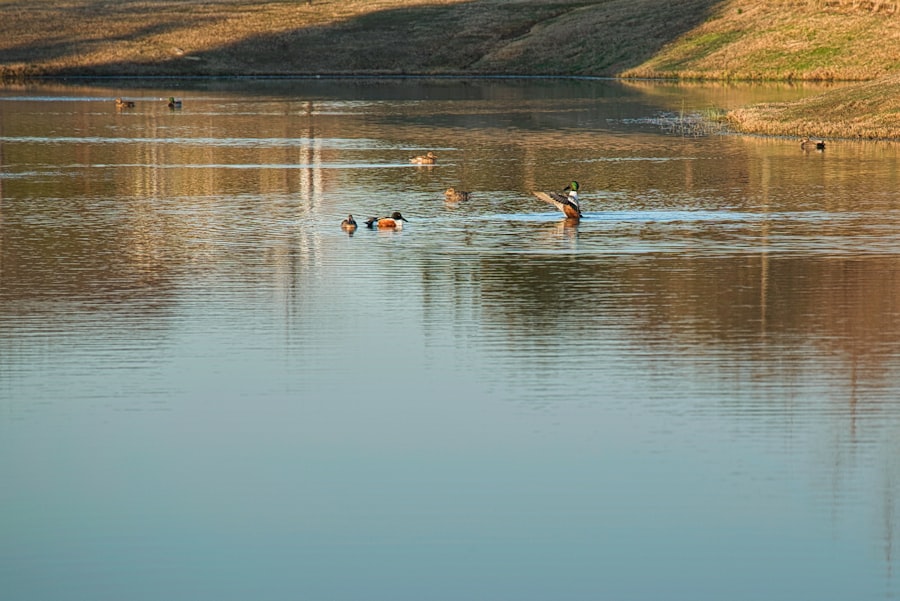
When hunting with duck breeds, there are several best practices that hunters should follow to ensure a safe and successful experience. It is important to always hunt within the legal limits and regulations set forth by local authorities to protect duck populations and preserve natural habitats. Hunters should also prioritize safety by wearing appropriate gear, including waterproof clothing, waders, and protective eyewear. Additionally, it is important to practice ethical hunting by taking clean shots and retrieving downed ducks promptly.
Another best practice for hunting with duck breeds is to respect the natural environment and wildlife. Hunters should be mindful of their impact on the environment and take steps to minimize their footprint while hunting. This includes properly disposing of waste, avoiding damage to natural habitats, and respecting the wildlife that inhabits these areas. Finally, it is important to continuously improve hunting skills through practice, education, and learning from experienced hunters. By following these best practices, hunters can enjoy a fulfilling and sustainable experience when hunting with duck breeds.
Conclusion and Final Tips for Duck Hunting
Duck hunting is a challenging and rewarding sport that requires skill, patience, and a deep understanding of ducks’ behavior and instincts. When choosing a duck breed for hunting, it is important to consider factors such as habitat preferences, temperament, trainability, and physical characteristics. Training and handling duck breeds for hunting requires dedication and a deep understanding of ducks’ unique needs and behaviors.
When hunting with duck breeds, it is important to follow best practices such as respecting legal limits and regulations, prioritizing safety, practicing ethical hunting, and respecting the natural environment and wildlife. By following these best practices, hunters can enjoy a fulfilling and sustainable experience when hunting with duck breeds. Overall, duck hunting is not only a sport but also a way to manage duck populations and preserve the natural balance of ecosystems while providing a source of food for many hunters.
If you’re interested in learning more about duck breeds for hunting, you might also want to check out this informative article on where to put a chicken coop. Understanding the best location for your coop can help ensure the safety and well-being of your poultry, including ducks.
FAQs
What are the best duck breeds for hunting?
There are several duck breeds that are popular for hunting, including the Mallard, Pintail, Teal, and Wood Duck. These breeds are known for their strong flying abilities and are commonly found in hunting areas.
What characteristics should I look for in a duck breed for hunting?
When selecting a duck breed for hunting, it’s important to consider their flying abilities, size, and behavior. Look for breeds that are strong flyers, have good stamina, and are adaptable to different hunting environments.
Are there specific duck breeds that are better for certain hunting environments?
Yes, certain duck breeds are better suited for specific hunting environments. For example, the Mallard is known for its adaptability and can be found in a variety of habitats, while the Wood Duck prefers wooded areas and swamps.
What are some popular duck breeds for waterfowl hunting?
Popular duck breeds for waterfowl hunting include the Mallard, Pintail, Teal, and Canvasback. These breeds are known for their strong flying abilities and are commonly found in wetland areas.
Are there any duck breeds that are not suitable for hunting?
While all duck breeds have their own unique characteristics, some may not be as well-suited for hunting as others. It’s important to research and understand the specific traits and behaviors of each breed before selecting them for hunting purposes.
Meet Walter, the feathered-friend fanatic of Florida! Nestled in the sunshine state, Walter struts through life with his feathered companions, clucking his way to happiness. With a coop that’s fancier than a five-star hotel, he’s the Don Juan of the chicken world. When he’s not teaching his hens to do the cha-cha, you’ll find him in a heated debate with his prized rooster, Sir Clucks-a-Lot. Walter’s poultry passion is no yolk; he’s the sunny-side-up guy you never knew you needed in your flock of friends!

